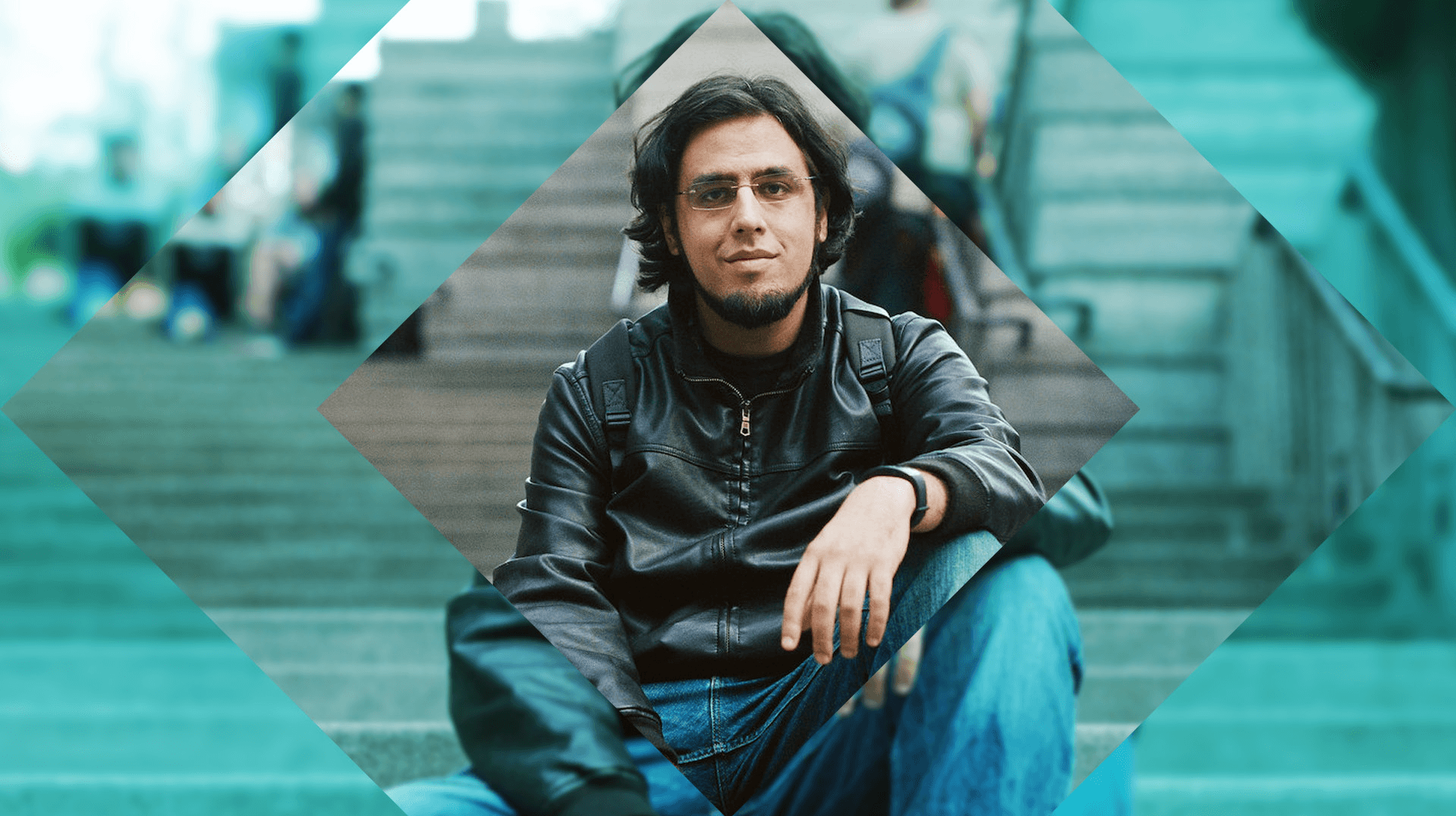What if we no longer see the growth of the economy as the ultimate goal, but for example solidarity, circularity or the assurance that we can still breathe oxygen in 2090? In other words: What if we change the rules of the game?
In the Game Changer blog series, we talk to artists, musicians and do-gooders who do things differently. We ask them: 'What new rules of the game are needed for an open, fair and inclusive future?' Today we speak to Rami Ismail, game developer who fights for more equality of opportunity within the game industry.
How would you introduce yourself? ‘I am Rami Ismail, game developer, public speaker and consultant. I've been programming small games since I was six. When I was eighteen, I launched my first commercial project. After two years at the Hogeschool voor Kunsten in Utrecht, I realised that school wasn't really the place for me. I stopped my education and started Vlambeer (game studio, together with Jan Willem Nijman). We soon saw that we had to spread our wings abroad in order to grow. There I also started giving talks to inspire young game developers in less privileged situations about the profession. I quickly realised how unfair the industry was. So many creative developers I encountered there, didn't have access to conferences and other forms of knowledge sharing, or the technical infrastructure that many in the industry take for granted. For example, I spoke to developers at a game studio in Kenya, who had to regularly print out the entire source code of their game in the event of a power outage. And I also saw the inequality in games themselves. In the commercially successful games, the characters who shoot look like my American friends and the ones being shot look like my Egyptian friends.’
'The characters who shoot always look like my American friends and the ones being shot look like my Egyptian friends.’
What do you think are the rules of the current system? ‘In short, it's capitalism. It creates this unequal situation. Money is concentrated in one place. The closer you are to that place (geographically, culturally or socio-economically), the easier it is to join. That money provides opportunities: game conferences, networking events, knowledge sharing, etc. Try getting a few well-known developers to Namibia to share their knowledge. There is no financial incentive, combined with little interest and sometimes even racism. The game world itself is very white. When a person of color comes to pitch about African representation in a game to a board of twelve white men, you notice how difficult it is to gain access to that world.’
What's not working about these rules? And why? ‘Gaming is basically a creative market, but you see a recurring pattern. Developers in developing countries are initially mainly 'proving that it is possible'. First to their immediate environment that their passion can lead to a serious job, then to a studio that can generate money for their idea or reach people. Young game developers often choose something they know and copy it so that it is recognisable to financiers. This causes a lot of creativity to be lost and keeps the system going.
The greatest invisible enemy is the dominance of the English language and 'Western' culture. This acts as an exclusion mechanism that already denies many access to knowledge, standards and existing code. As an Arab who can program but does not speak English, you start with a kilometer behind.
'For example an Arab who can program but does not speak English, starts with a great disadvantage.'
I spoke to a team of developers from Indonesia. They wanted to translate the experience of 'a conversation with a stranger in a coffee bar' into a game. It wasn't until they changed the setting of their game to Seattle (US) and a Western context that investors found it interesting. Then these financiers could empathise, because they recognised the price for a cup of coffee, products and typical American coffee bar setting. A typical example of the dominance of that culture in games.’
How does your work commit to an alternative to the current system? ‘Through my work I try to offer opportunities to people who are excluded by the system. I share my network to create entrances that people didn't have before. I teach them to pitch, coach developers' teams and see if I can set up a knowledge-sharing infrastructure that communities can use themselves. You see that governments are also finding this increasingly interesting. If you can create a competitive pool of developers with these new opportunities, it can mean a lot for the local economy.'
'90% of all communication in gaming is in English and that excludes local, non-English speaking cultures.'
Imagine if the rules of the game industry could be rewritten. What would you change then? ‘This may sound unfeasible, but I would abolish the lingua franca. Get away from the dominance of one world language. 90% of all communication in gaming is in English and that excludes local, non-English speaking cultures. I would like to strengthen the decentralised forces and creativity in the gaming industry. A good example came recently from Uruguay. The 'One Laptop per Child' program provided all children in the country with a computer. This sparked a boom in the local game industry as game developers turned to creative language applications for kids in Spanish. Games from the local community, which enhance the local culture and creativity.’


